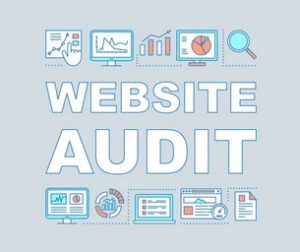Home » Posts tagged 'website audit tool'
Tag Archives: website audit tool
Conducting A Website Audit – What You Need To Do?
 A website audit report usually contains three main sections: usability, functionality, and SEO or Search Engine Optimization. The purpose of this section is to find out if users find the site easy to use and navigate. The evaluation is done based on several parameters like the layout, the graphics, the content, and the user experience. If the site does not provide navigational ease, then it will not rank well. The same holds for the graphic and text quality. For more valuable data about website audits, visit this website at https://www.scamrisk.com/.
A website audit report usually contains three main sections: usability, functionality, and SEO or Search Engine Optimization. The purpose of this section is to find out if users find the site easy to use and navigate. The evaluation is done based on several parameters like the layout, the graphics, the content, and the user experience. If the site does not provide navigational ease, then it will not rank well. The same holds for the graphic and text quality. For more valuable data about website audits, visit this website at https://www.scamrisk.com/.
Another critical area to check is the quality of the site’s links and the relevance of anchor text in search engine results. This section may also show how your competitor’s websites are ranked in terms of keywords. You will need to ensure that your site is ranking well for the selected search engine.
Next, we look at the effectiveness of the site’s content. In website audits, we consider how the content is optimized. This includes keyword placement, meta tags, HTML coding, content formatting, and other essential elements of on-page optimization. If your web pages lack relevant keywords and content, then they are ignored by the search engine, leading to a low search engine ranking.
Finally, we come to the last central area of a website audit: the site’s crawl ability. This refers to how many search engines crawl your site every month, and how they rank your site in terms of relative importance. In the best sites, every page is crawled at least once every month. If the number is too low or the rate of crawling is too high, you may have a problem with your site’s crawling ability, which can affect your SEO strategy.
Now that you have a basic idea of what to look for, you should now be able to run a website audit. Before you begin, however, make sure that you understand every detail about your own site, and ask as many questions as needed. Remember, the purpose of the auditing process is to understand your technical systems and how they are interconnected. Answering questions related to usability is only the first step.
After running site audits, you should run them again every six months at least to make sure that the optimization and redesigns are still bearing fruit. There’s nothing better than a fresh set of eyes, assessing a site’s current design and functionality. It will give you a good idea of what technical changes need to be made and will let you see how well the previous audit report was effective in identifying problems.
Another important tool in a website audit tool is an objective technical scoring program. This tool can be run by yourself or by a member of your team and uses A/S clarity scorecards to evaluate your site’s usability. With the help of a clear technical scorecard, you can easily compare your site to the original and determine which areas need to be improved. After this, it will be much easier for you to make technical and usability improvements to your site.
The final step before launching a full website audit on your site is the creation of an audit checklist. You can use this checklist as the basis of the technical and usability assessments you need to conduct. Keep in mind that the list of items on your audit checklist will depend on the exact nature of your requirements and of the problems you are trying to solve. As long as there are valid concerns, you should add the issues to the list.
Once you have created your audit checklist, you can start searching for a reliable technical SEO company. There are many companies offering these services today, so you don’t have to exert too much effort in looking for one. Try to get as much feedback as you can from other clients about their experiences with a particular provider. It’s also important that you choose someone who is capable of working with different kinds of browsers since some problems can happen with certain browsers when it comes to optimization.
Another important thing you need to take into consideration when conducting a website audit is the user experience. This is perhaps the most important aspect of your audit because it will determine whether you found technical and SEO issues or not. User experience is a very effective tool in identifying whether the issues found on your site were purely technical and SEO-related. For instance, if you found broken links, the user might be frustrated, and this will have an effect on the overall user experience and this will directly affect the performance of the site. So, always keep in mind that if you want to conduct a technical SEO audit, you should always keep the user experience as your topmost priority.